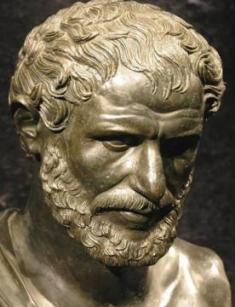
Heraclitus: biography
Heraclitus is a favorite object for studies among ancient and modern biographers: they tried to separate his dark philosophical teachings from his equally dark and mysterious life. The man’s nicknames were The Weeping Philosopher and the Riddler. It is peculiar that readers and biographers feel pretty much repugnancy when they explore the essential moments of his life and, especially, death.
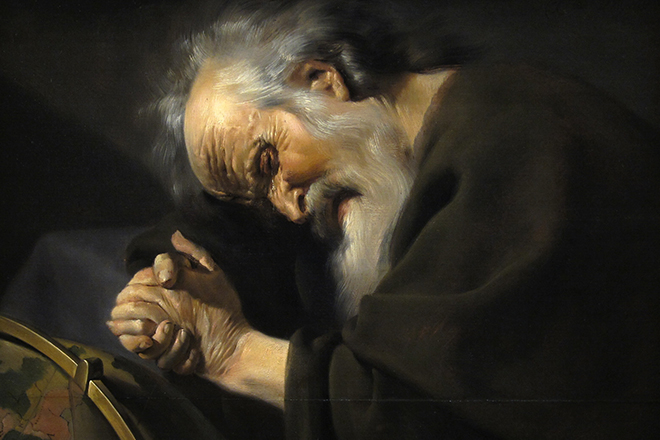
Although this hostility is understandable to some extent, it broke all reasonable limits when Heraclitus died and was buried in excrements. To comprehend this death, it is necessary to examine Heraclitus’s traditional biography, for contemporaries’ reactions and interpretations can shed light on the enigmatic figure.
Childhood and youth
Heraclitus was born in Ephesus, modern Turkey. The exact birth year is unknown; it happened circa 540 BC. The future philosopher came from an influential family of Androkles; other sources give different father’s names, Blosôn or Herakôn.
The child did not stand out among his peers; he liked to play knucklebones with other boys. However, the perspective to inherit his father’s power did not bring much joy. According to historians, the young man rejected his heirship in favor of his younger brother and devoted his life to reflections in Artemis’s temple; he sometimes returned to playing knucklebones with kids.
The Greek philosopher Diogenes worked as a biographer for many predecessor colleagues. While he called this action the proof of Heraclitus’s generosity, later, it was said to be the manifestation of pride, arrogance, and disdain.
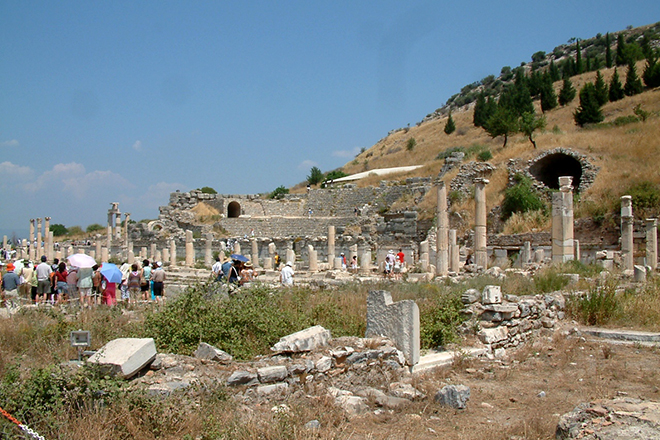
Thanks to these traits of character, Heraclitus became a misanthrope. Thus, understanding his philosophy and works should start with understanding his personal qualities.
The man had no students of followers, except for Cratylus from Athens. Heraclitus often said that teachers could not make a person competent; otherwise, they would teach Xenophanes and Pythagoras wisdom. The philosopher also marked that Homer deserved to be followed and beaten at poetic contests. The examples illustrate the thinker’s dominant features: haughtiness and contempt for people. The reasons for such an attitude were simple: these men had not reached wisdom, in Heraclitus’s opinion.
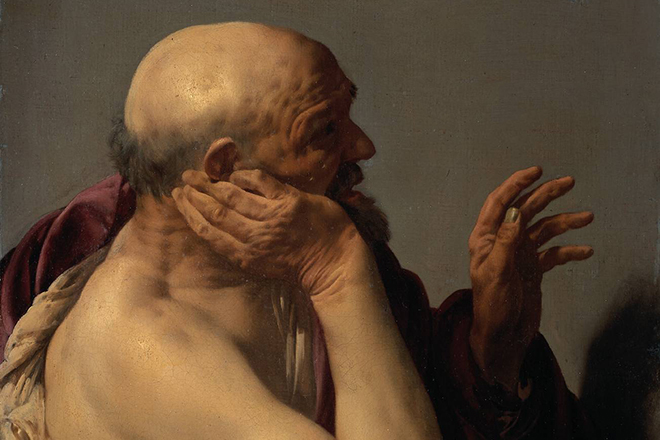
People around him seemed ignorant and stupid. The philosopher did not participate in colleagues’ discussions and always had extreme opinions. One of his basic ideas was about war: it was presumably the source of progress in the world, and the death of one creature gave life to another. Later, melancholic Heraclitus was often compared to the Laughing Philosopher Democritus.
Philosophy
Heraclitus’s views are mysterious and questionable; almost all works may be treated as ambiguous. Perhaps, it was caused by the fact that the originals did not survive up to the present days – the man’s ideas are known from other philosophers’ and scientists’ references.
Heraclitus had his own peculiar vision of wisdom. He never expressed his ideas directly – only puzzles and hints. This is where the nickname “the Riddler” is derived from. The man’s thoughts were full of metaphors and reminded poems.
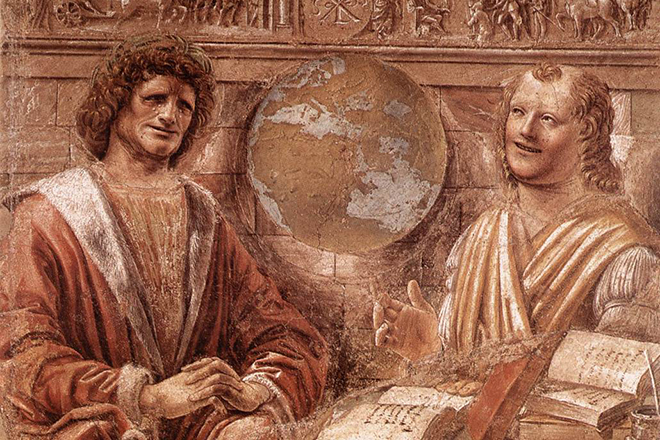
Only remarkable analytical skills and proper education could let a person understand Heraclitus’s ideas. Even Socrates wrote that he understood only an insignificant part of his message; however, he found it beautiful. Besides, the philosopher from Ephesus invented a unique method: to present complicated ideas with simplified examples, like natural processes. Those who got acquainted with Heraclitus’s statements reached the final thought on their own; they could come to their personal conclusions as well.
Heraclitus introduced the universal term “logos”: its original meanings were “aphorism” and “meaning”. Today, scholars use it to reflect the meaning of existence and the regularity of existing things.
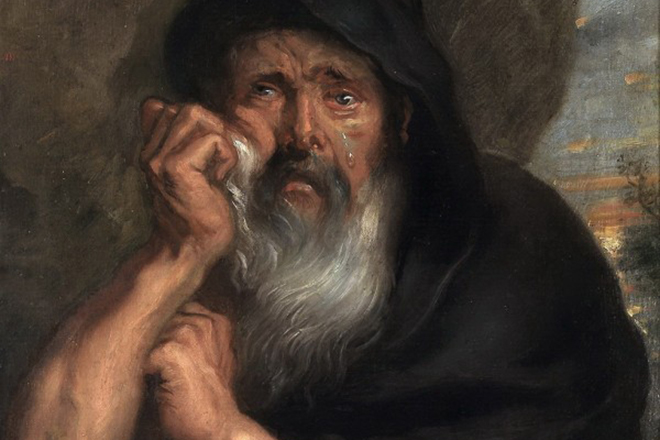
Heraclitus’s teaching about logos is the reflection of the world where stable harmony gets along with dynamics. The universal harmony is space Logos; a human being cannot understand it and views their own Logos as the highest one. In fact, Heraclitus’s harmony is unity: everything flows, and matter transforms into various forms, with Logos being stable. The quote
You cannot look twice at the same river, for fresh waters are ever flowing in
continues that idea. Although modern people gave this expression a new meaning, it still projects the author’s primary idea.
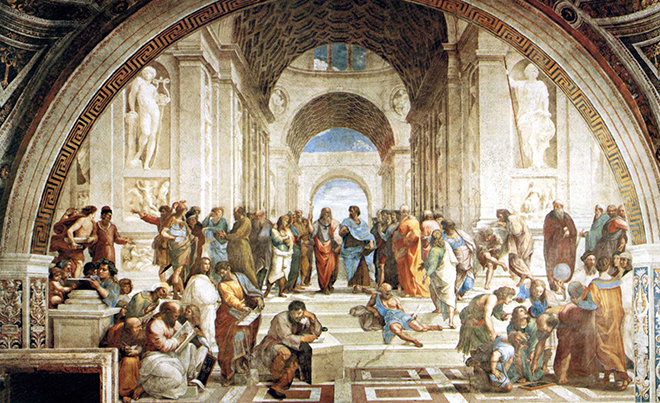
The permanent transformations of substances created the world’s flow. As the philosopher emphasized, things not only kept changing all the time but also had their opposites. Speaking of a soul, he identified two components: noble fire and ignoble water. Fire was treated as the arche.
Heraclitus presented the notion of the world fire, where the cosmos was destroyed to be reborn again. In the 18th century, Hegel refuted the theory of cosmos destruction; Schleiermacher did not agree that fire was the primary element. At some point, the opposite views got more popular: according to the ancient Greek philosopher Parmenides, who lived in the same period as Heraclitus, the matter was permanent, unchangeable, and homogenous.
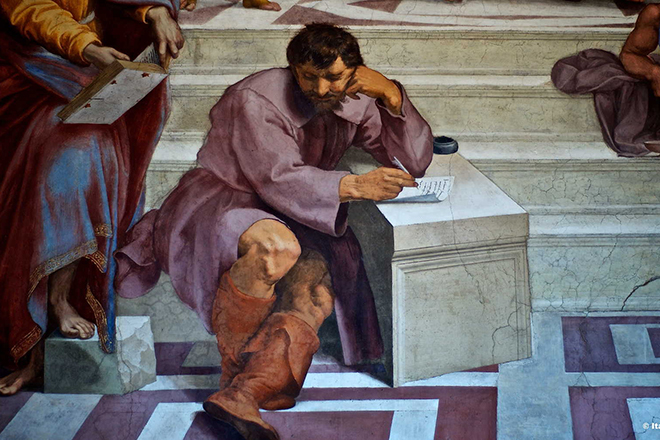
In the fourth century BC, nature-philosophers Plato and Aristotle incorporate new meanings in the term “logos”; it lost its ontological senses. Later, the Stoics returned the cosmic essence to Logos. By the way, Heraclitus also introduced the world “cosmos”.
Some researchers treat the man as a natural philosopher – the only work that survived until the modern ages is entitled On Nature. It consists of hundreds of separate fragments; the philologist Hermann Alexander Diels worked on them. Heraclitus founded the basic principles of the theory of atomism: he introduced the concept of an atom, the smallest indivisible part, and solved Eleatic paradoxes. Besides, the philosopher created the conception of differential calculus.
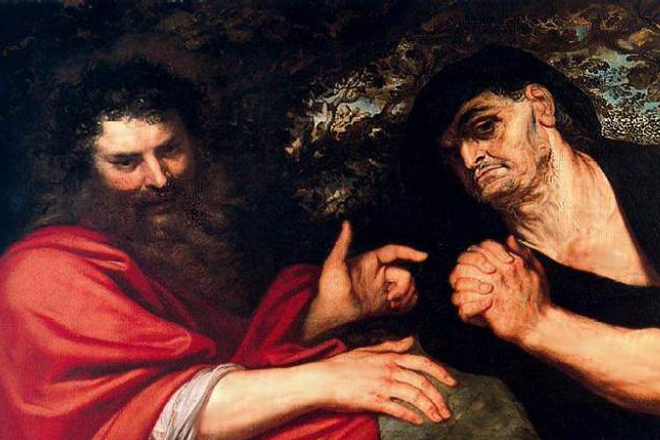
According to this vision, everything, even a human soul, consisted of atoms. After physical death, they allegedly transform into a different sort of matter; it was the essential principle of the atomistic theory. Heraclitus’s anatomy corresponded with how the world worked: a body was built of the same atoms as the universe, and a stomach was the primary organ.
Heraclitus’s ideas reflected in further studies: they appeared in the Milesian school; Pythagoras and Thales belonged there.
Personal life
Heraclitus’s social issues, particularly, his disdain to people, influenced his personal life. The man had no wife and children – he spent all his life in the temple of the eternally young goddess Artemins. No disciples followed the wise man; scientists appreciated his ontological problems and solutions only after his death.
Death
Both ordinary people and researchers are outraged not only by the philosopher’s worldview but also by the details of his death. Legends say that Heraclitus died, smearing himself with manure; other rumors reported that dogs tore his body.
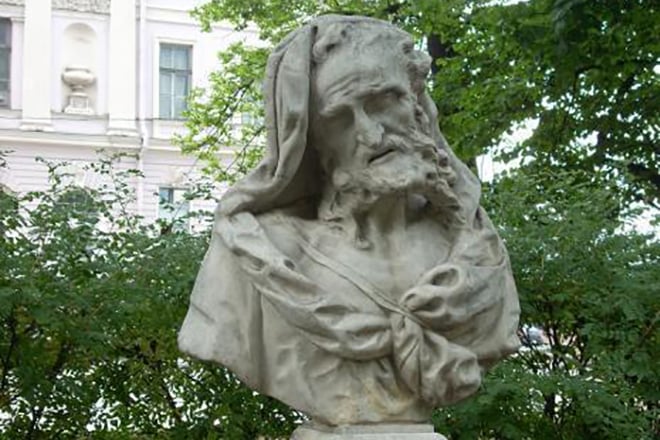
Marcus Aurelius’s notes seem to be the most reliable source: the philosopher died of abdominal dropsy (the disease when too much liquid fills an abdominal cavity because of kidney and heart disorders).
Bibliography
- Natural-philosophic theory of atomism
- The initial form of dialectics
- The Muses
- On Nature. Part 1. On the universe
- On Nature. Part 2. On the state
- On Nature. Part 3. On gods




